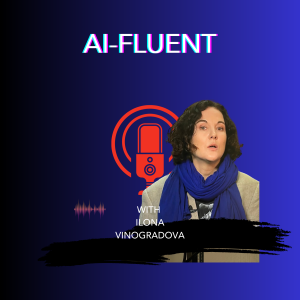
Saturday Feb 15, 2025
Marius Dragomir on How Big Tech Turned from Solution to Problem, and the Future of Public Service Media in a Hyper-personalised Storytelling World
Marius Dragomir, the Founding Director of the Media and Journalism Research Centre, shares with me the most surprising findings from his recent research on propaganda narratives, as well as the revealing discoveries about ownership and financial aspects of the 100 AI tools most used by journalists.
Remember that 67 % of these 100 tools lack critical data on ownership and finances. Check the tools you are using.
How can the media industry become less dependent on Big Tech? One of the possible solutions lies with audiences and the private sector. We are discussing the case of the Czech Republic – what makes it so special?
Main things we've discussed in this episode:
- One of the Media and Journalism Research Centre's recent research articles was titled "Ownership and Financial Insights of AI Used in Journalism", and we are discussing its findings. They looked into the 100 AI tools most used by journalists and found that only 33 % of AI tool companies demonstrate sufficient transparency, with 67 % lacking critical data on ownership, finances and other basic information.
- There is one AI-powered fact-checking tool mentioned in the research article called Clarity, owned by former Israeli military personnel. The owners promoted it as the best fact-checking tool for the Israeli-Palestinian war. How might this opacity affect journalistic independence and credibility in the long term?
- The impact technology is having on fact-checking in general
- BBC's research on AI assistants' news accuracy. Their tests of ChatGPT, Copilot, Gemini, and Perplexity exposed major flaws. 51 % of AI responses had significant issues. 19 % of responses introduced errors when citing the BBC. 13 % misquoted or made up BBC content entirely.
- The Centre's research on disinformation and propaganda narratives in different parts of the world. Marius shares trends and examples that surprised him in terms of how these narratives are being shaped and distributed.
- Big Tech and media - a healthy or toxic relationship?
- How Big Tech turned from a liberating tool to an oppressive one, from a solution to a problem for many journalists
- Marius shares his observations on how Big Tech companies work closely with governments, prioritising the government's information on search engines and social media. We are talking about Europe here, not only authoritarian regimes.
- What are the solutions - how can the media industry become less dependent on Big Tech? One of the possible solutions lies with audiences and the private sector. The case of the Czech Republic.
- On regulations and ethics: what would be Marius's top three AI-related regulations that he would issue immediately?
- When regulations work and when they don't
- What media organisations need to change to survive and stay relevant
- On public service journalism. What is the biggest challenge that public service journalism in Europe faces today? And what are the possible solutions?
- Talking about the evolving media ecosystems in Europe, Marius came up with four distinct models: the Corporate model, the Public Interest model, the Captured model (high government control) and the Atomised model (journalism for sale, private interests driven).
- How relevant are all of these models in a world where generative AI is becoming a new storytelling medium? In that world where every viewer is an audience of one - what will the perception of facts as such be? And how might that type of storytelling medium change the perception of non-fiction reporting?
- Given the trend towards hyper-personalised storytelling through AI, how might this affect the traditional role of public service media in creating shared national conversations and cultural touchpoints? Are we risking further social fragmentation?
- What will replace the increasingly commercialised and disengaging social media?
No comments yet. Be the first to say something!